Alison Hewett is the Head of Library Services at Kristin School on Auckland’s North Shore. Kristin is an independent co-educational school of 1620 students ranging in age from Preschool through to Year 13. It offers the International Baccalaureate throughout the school, and NCEA Levels 1-3.
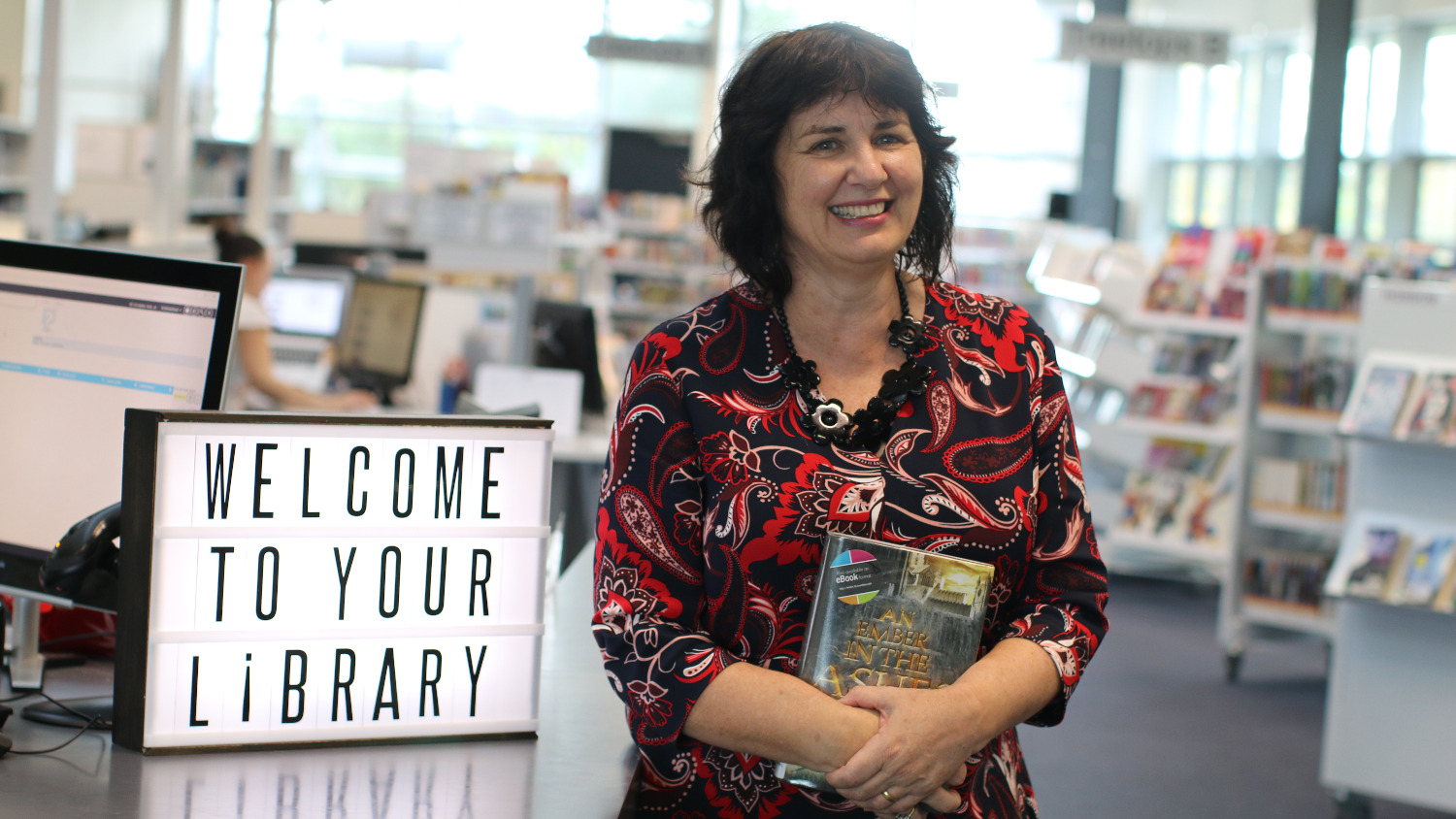
About my library
Rather than having separate libraries for the three schools, our Library space is shared and is located at the heart of the school. It’s often buzzing with the noise and activity of students of all ages. Our ICT team is also based in the library, making the Library space an information hub for the whole school. I feel very lucky to have fantastic technical support as it’s essential that the process is seamless and straightforward when offering digital products to students. The Library is well supported by the school and wider parent community.
We are fortunate to have a dedicated full-time qualified Librarian for each of the three schools; each librarian can concentrate on a niche part of the school community and specialise in the fiction range for that age group while also becoming deeply involved in the curriculum areas for that cohort. My role is to manage our Librarians and the services and collections we offer to the three schools. I’m really a facilitator and through conversation and collaboration with teachers, I ensure that our Library programme and collections are relevant to our inquiry-led curriculum, discoverable, and shared widely across a variety of ages and learning levels. Together our team constantly strives to encourage and support our students to become engaged and enthusiastic readers, because students can’t effectively access and utilise information and gain knowledge unless they can read confidently.
…I ensure that our Library programme and collections are relevant to our inquiry-led curriculum, discoverable, and shared widely across a variety of ages and learning levels.
While I’ve been in my current role for less than 12 months, I spent five years as the Kristin Junior School Librarian. My focus in that role was on encouraging children to read widely, expanding and improving our fiction collection to meet our students’ interests, and helping to plan and develop our nonfiction and digital resources to fully support the IB Primary Years Programme. I was also responsible for introducing and developing our digital ebook and audiobook collections across the three schools. I leapt at the chance to take on my current management role because it’s an opportunity for some ‘blue-sky’ thinking and being able to put some of the ideas I have regarding collaboration, differentiation and creativity into action.
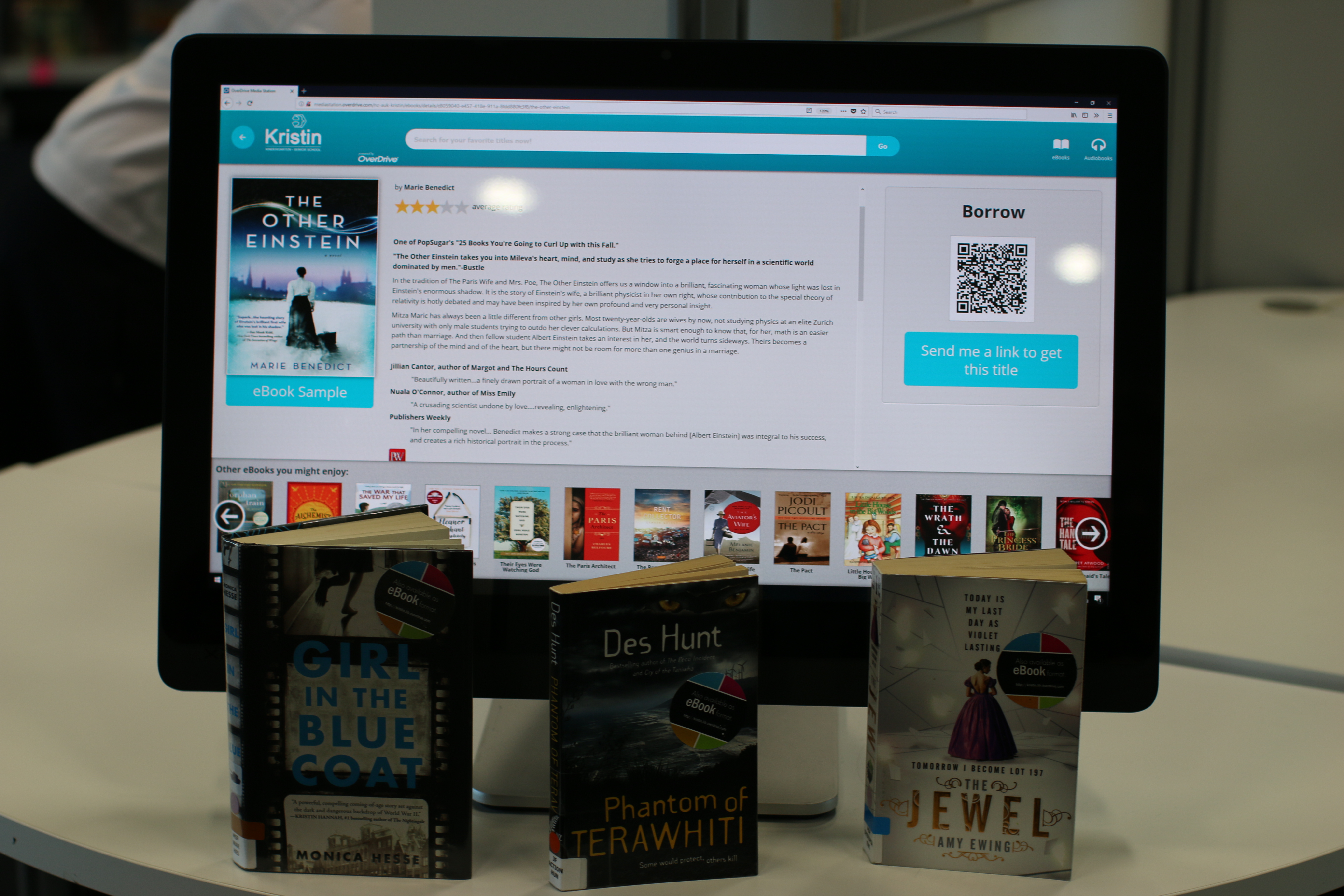
Surround children with books
Children should be surrounded by books from the earliest age and I believe that this is as much to nurture their natural curiosity as it is to develop literacy skills. School Libraries can introduce students to a richer and more diverse range of stories than they may find in their home or local bookstore; and a school librarian can play a key role in helping children discover books that they will not only love but that will also help them identify as citizens of the world with a global and empathetic mindset.
I love the idea that literature opens minds and that through both fiction and nonfiction our students can develop empathy by ‘walking in another person’s shoes’. Readers may travel the world without leaving their sofa and can find out about real life situations and the consequences of good or bad choices without having to experience them in reality. It’s also vital that all children and young people find themselves represented in the stories they read and having titles that portray or resonate with the underrepresented kids in our school community is important for the positive emotional well-being of our students.
Readers may travel the world without leaving their sofa and can find out about real life situations and the consequences of good or bad choices without having to experience them in reality.
Planning, cataloguing, sharing ideas
My day usually starts at home with coffee and a scroll through Twitter to catch up on news where I tag items to follow up when I have more time.
The day is busy and varied. I’ll either have planning meetings with teachers and curriculum teams, or with our Librarians, especially when we are reviewing our units of inquiry. I usually spend time on digital curation, researching topics, ordering books and ebooks, cataloguing and organising the processing of physical resources.
There’s a lot involved with cataloguing electronic resources – they aren’t as visible so we have to make sure they are discoverable and promoted as much as physical resources. I might teach a class to use referencing tools, databases or digital curation resources; show them how to access ebooks while promoting and booktalking our print titles.
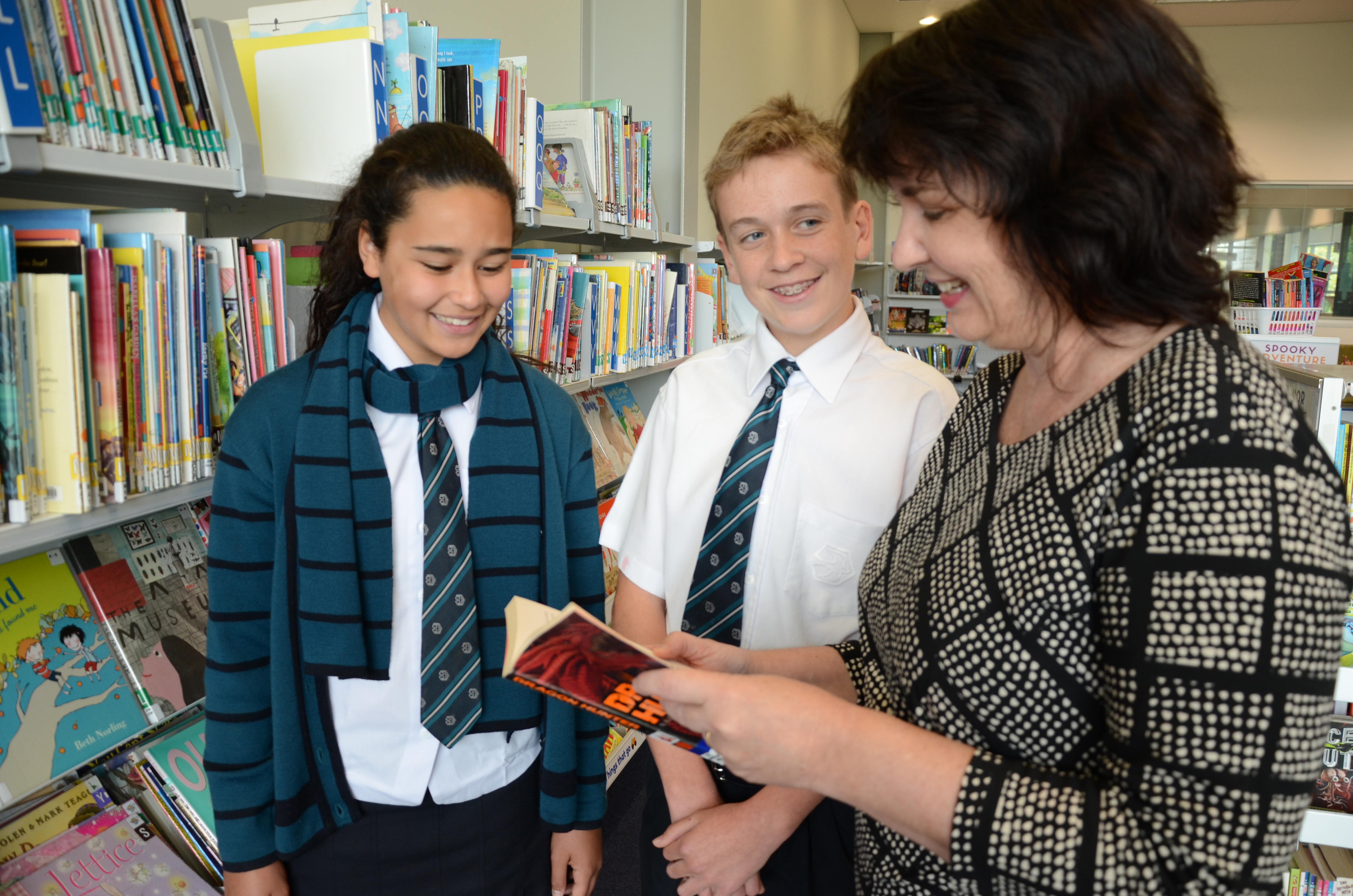
I used to write a blog, it’s now sadly neglected as I’ve turned my focus to sharing more with our staff and students. I love writing about resources and helping teachers and students see the connections between what they are inquiring into and interesting ways that related fiction and picture books might be used for teaching. Sharing my ideas through our school-wide Learning Management System with teachers has led to some amazing conversations that have increased awareness of the depth of our collections and the unique contribution Librarians can make to learning.
Throughout the day, there is constant interaction with my Library team, students, teachers and parents at the circulation desk, and always plenty of conversation about books, movies and TV shows as well as suggestions and book buzz from students. After school our Library is full again with families (who borrow and use our collections to support their children) and many older students who study or hang out in the Library. My day usually ends with reading reviews, blog posts and tweets from reviewers, other librarians and educators that I follow on social media (including the Sapling).
An inviting, open space
Our Library is an architecturally designed space with lots of windows and abundance of natural light.
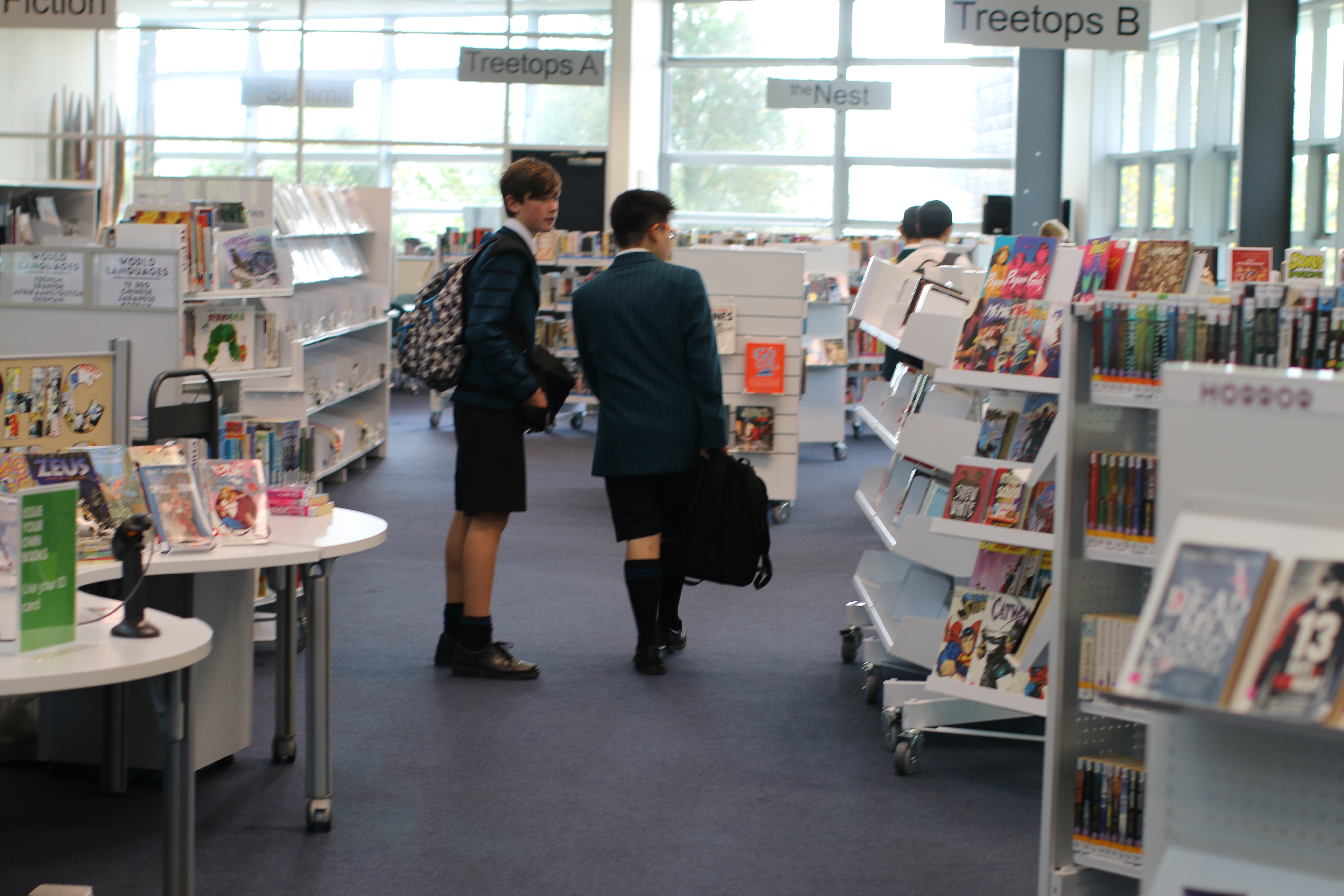
We’ve recently made some physical changes to the layout that is part of a bigger project to make the Middle Senior Library more inviting and more of a teenage space. We converted our fiction shelves from fixed to mobile units in this area. We really wanted to make the space less imposing as the original shelves were high, too close together, in regimented rows, and it was difficult to rearrange our learning areas for a variety of purposes.
While we now have more flexible learning spaces available for both classes and recreational use, the changes have really opened up more of our collection to our students, and they can’t help but be exposed to a wider variety of books as they journey through the library. The books now seem to ‘sell themselves’ and it’s extremely satisfying seeing the face out book stands empty after a class visit.
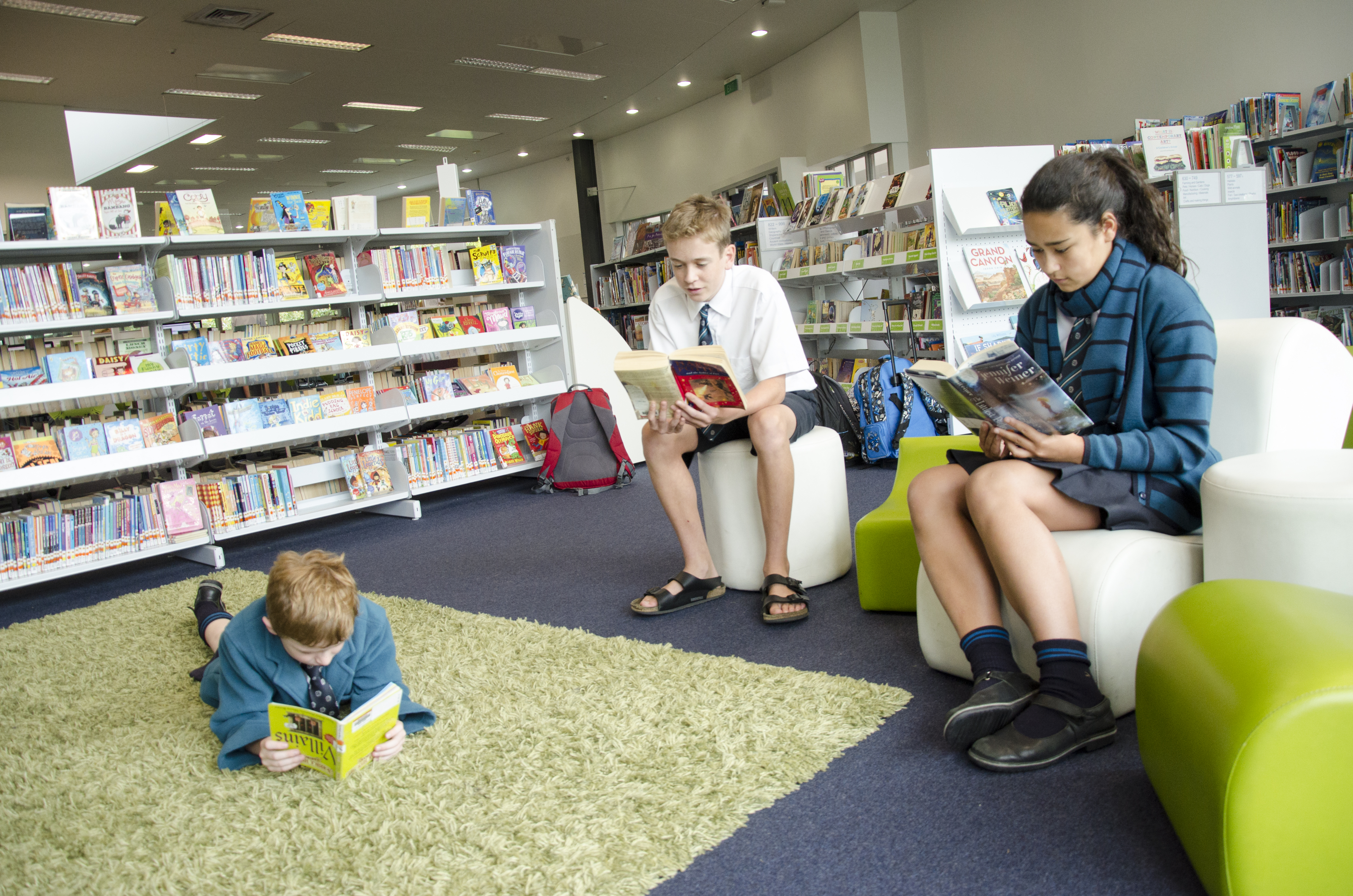
We’ve expanded our popular graphic novels and manga collections because we really want students to see reading as a pleasurable activity and not a chore. This is a format that can be fun for those students who describe themselves as ‘not a reader’, so much so, that it almost doesn’t feel like reading to them!
Summer Reading Promotion
One of the most successful reading promotions we’ve offered was also one of the simplest. When we wanted to promote reading over the summer holidays for our students, we invited parents and our staff to bring their children into the library for an evening to self select books for the holidays, learn about ebooks and have our Librarians on hand to help them with their choices.
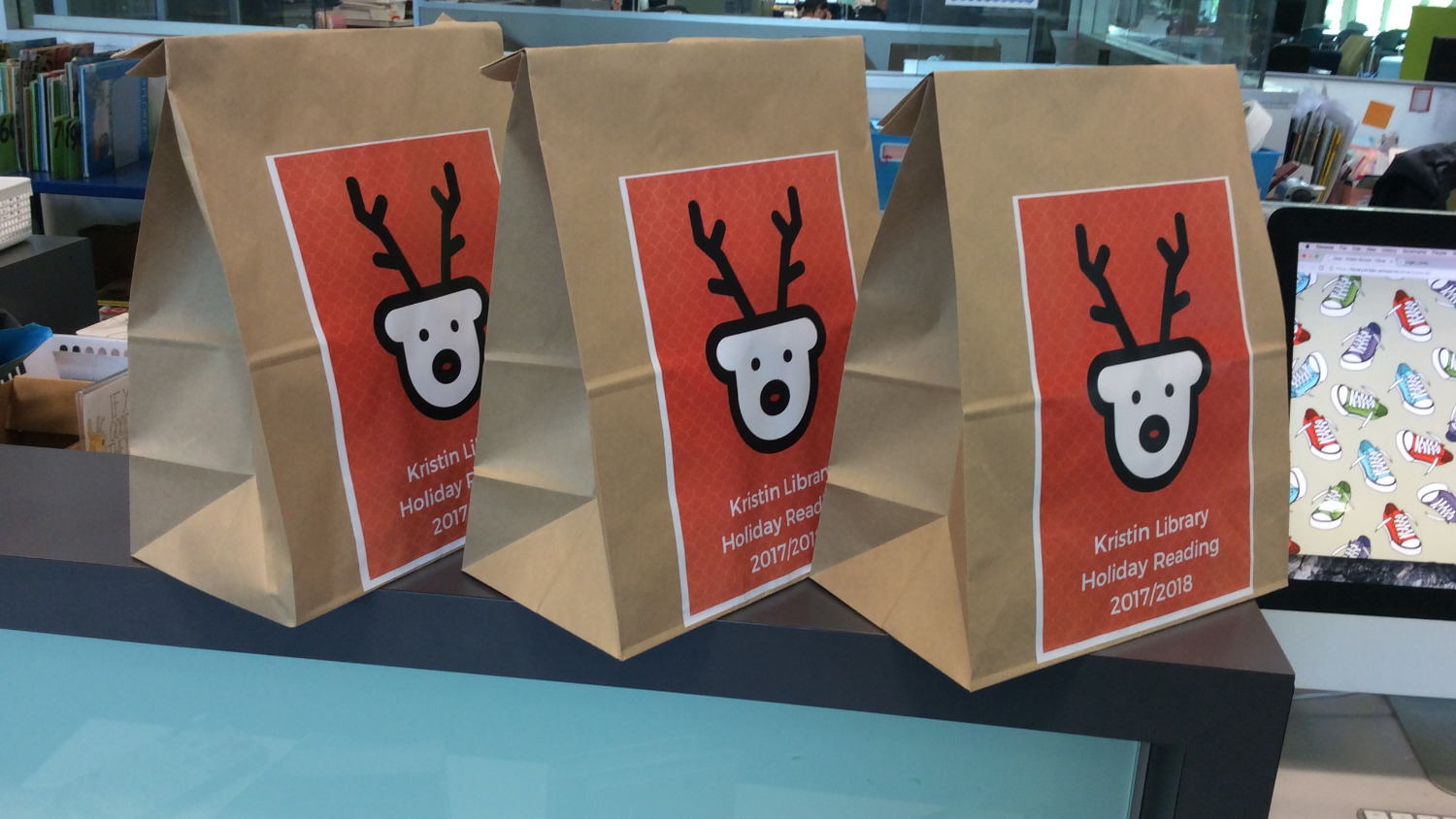
We made really simple carry bags from paper grocery sacks, a cute gender neutral image designed in Canva.com and a glue stick. The bags soon became covetable items and the ‘Fill a Bag with Books’ campaign extended from the after-hours event to seeing full bags of books checked out during the class sessions in the last few days of term.
The feedback from parents was extremely positive and most reported back after the holidays that their children had read more books than usual. Many parents have asked us to repeat this event ahead of other holiday periods and it did give us a wealth of ideas about events we might host for our staff, students and parents each term.
What I want to see
I’d love it if more publishers would support school librarians as partners in creating readers (and future book buyers) by offering their ebook titles on friendlier terms than they do currently. There is still a ton of popular fiction we aren’t able to buy as ebooks as they aren’t offered to Libraries in this part of the world, and there are many available titles that we can’t justify adding to our collections due to the prices or terms.
Many of our students use ebooks to take advantage of the dyslexia-friendly fonts, text to speech features and the privacy afforded by being able to read discreetly. Others download and listen to audiobook versions of texts they might struggle to read in print. It’s always very satisfying to see the borrowing and reading that’s taking place in weekends and holiday breaks, even when our physical library is closed. Our students read a lot of ebooks but this hasn’t detracted from our print loans which are as high as they were before ebooks were introduced, and promoting titles in digital formats also increases awareness and demand for the print version.
Many of our students use ebooks to take advantage of the dyslexia-friendly fonts, text to speech features and the privacy afforded by being able to read discreetly.
Many of the school librarians featured in the Sapling have applauded the nonfiction titles being published in New Zealand and also articulated the need for even more NZ nonfiction for young people. While I wholeheartedly agree with these sentiments, I’d like to add that the simultaneous availability of digital copies of nonfiction books and informational texts would be welcome as an alternative to print, allowing us to get more copies into more hands.
Book Recommendations
I love YA! especially dystopian and contemporary fiction. However I try to read widely from children’s fiction through to adult fiction and nonfiction across a variety of genres and it’s impossible to choose just one favourite title.
Books I’m currently encouraging others to try: Little fires everywhere by Celeste Ng (heart-wrenching perfection), The children of blood and bone by Tomi Adeyemi (Fresh and exciting mystical fantasy), Breaking the spell: my life as a Rajneeshee and the long journey back to freedom by Jane Stork (I sought this out after binge watching the addictive Netflix documentary series ‘Wild wild country’).
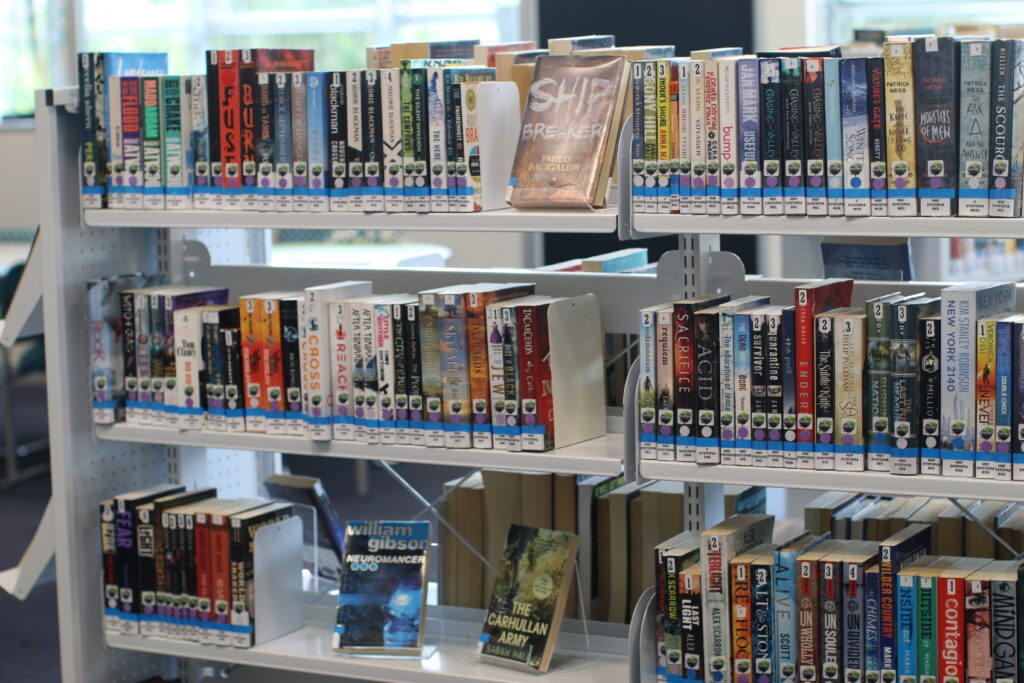
I’ve just finished A Gentleman in Moscow by Amor Towles (a different perspective of life in post revolutionary Russia and as one teacher described it to me, “reading it is like eating cake…it’s just written so beautifully”).
I’ve just started Dawn raid by Pauline Vaeluaga Smith. I vividly remember this period of NZ history growing up in the 70s and listening to the National Radio news reports about the raids and protests under the government of the day. This story is providing additional insight to the plight and experiences of the families that I wasn’t aware of at the time. There are so many parallels to the treatment of immigrants in other countries that we are reading about in the media currently, and I’m hoping this book resonates with students. Reading is all about making connections!
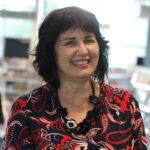
Alison Hewett
Alison Hewett is the Head of Library Services at Kristin School on Auckland’s North Shore. She qualified as a Librarian in the early 1980s, and has worked variously at Government Science Research Institute Library, the Wellington Public Library, and as a Librarian at an Investment Banking Firm. She began as Junior School Librarian at Kristin, having taken on her current role a year ago.



